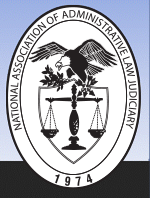First Page
206
Last Page
248
Abstract
The COVID-19 pandemic has exacerbated America’s pre-pandemic affordable housing crisis and millions of renters have paid the price. The Centers for Disease Control and Prevention (CDC) issued a nationwide eviction moratorium in September of 2020 due to the ongoing COVID-19 pandemic. While the moratorium was originally intended to be temporary, the CDC under the Biden administration was forced to extend the moratorium in August of 2021 due to a lack of congressional action. The CDC is empowered by the Public Health Service Act to take actions necessary to prevent the spread of communicable diseases, and the ongoing COVID-19 pandemic constitutes such a threat. This Comment analyzes the statutory construction of Section 361 of the Public Health Service Act, the enabling statute that gives the CDC the power to enforce measures to stop the spread of communicable diseases through measures such as quarantines. Using Chevron deference and looking at the legal framework and history of this statute, this Comment argues that the moratorium was a reasonable response to the ongoing pandemic because of the widespread economic disruption and displacement of those unable to pay rent due to financial hardship. Finally, this Comment argues that the temporary nature of the moratorium combined with the compelling public interest to protect vulnerable and marginalized communities tipped in favor of a federal eviction moratorium.
Recommended Citation
Deepika Chandrashekar,
Navigating the COVID-19 Eviction Crisis: The CDC's Emergency Eviction Moratorium and Judicial Deference,
43 J. Nat’l Ass’n Admin. L. Judiciary
206
(2022)
Available at:
https://digitalcommons.pepperdine.edu/naalj/vol43/iss1/5

